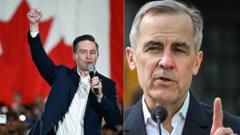In a critical week for U.S. foreign policy, Secretary of State Marco Rubio highlights both optimism and realism regarding ongoing negotiations in the Russia-Ukraine conflict.
**Trump Administration Faces Critical Decision on Ukraine Peace Efforts**

**Trump Administration Faces Critical Decision on Ukraine Peace Efforts**
Secretary of State Rubio emphasizes a balanced perspective on negotiations amid ongoing tensions.
In an appearance on NBC's "Meet the Press," Secretary of State Marco Rubio indicated that the Trump administration is at a pivotal point regarding its involvement in the Russia-Ukraine conflict. He stated that a decision would be made this week on whether to continue pursuing a negotiated settlement or to shift focus to other pressing issues. "This week will be very important," Rubio expressed, emphasizing the need to assess the administration's commitment to the situation in Ukraine.
Rubio offered a mix of cautious optimism and realism; he noted, "We want to see it happen. There are reasons to be optimistic, but there are reasons to be realistic of course as well. We’re close, but we’re not close enough.” However, he refrained from providing detailed updates on the current state of negotiations between Ukraine and Russia, leading to speculation about the intentions behind the timeline he suggested.
Meanwhile, Russian Foreign Minister Sergey V. Lavrov, in a separate interview on CBS News, maintained that while Russia is open to reaching an agreement, there are still critical points within the proposed deal that require further negotiation. Lavrov did not indicate that a conclusion was imminent, leaving the potential for a settlement up in the air.
This uncertainty follows a recent escalation in conflict, where Russia launched missile strikes on Kyiv, resulting in casualties and prompting sharp reactions from Trump. Lavrov noted that Russia has yet to agree to a U.S. proposition for a month-long ceasefire, which Ukraine has reportedly accepted. The situation remains tense, and the outcome of the U.S. decision could significantly impact the future of peace negotiations in the region.





















